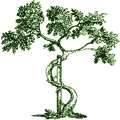
|
|||||||
Growing Pains
What are growing pains?
The typical story is a preschool child, waking up in the middle of the night, howling in pain and pointing to his legs. Mother would massage the legs, and after a while, the child returns to sleep. In the morning, the child gets up and is perfectly well the rest of the day. Sometimes, the pain recurs for a few nights in a row, sometimes, it occurs once and never returns.
What causes growing pains?
No one knows what causes the pain, although most doctors believe that it is not due to "growth" per se. Very likely, it could represent a minor injury that the child sustains during the course of play in the day. As long as he is busy, his attention is distracted from the minor bruise. Moreover, while awake, his muscles might be subconsciously "splinting" the injured part. At night, while asleep, the muscles are relaxed, and any movement of the injured part may cause pain.
Another explanation is that growing pains may represent the so-called "overuse syndrome" that occurs so frequently in active children.
What does your doctor do about it?
Growing pains is a diagnosis of exclusion. If the symptoms are very occasional, it may be safe to leave alone for a while. If the pain is recurrent, or frequent or getting worse, interferes with the child's activities, and associated with fever, or swelling, stiffness or limp, it should be worked up to rule out more serious problems.
A detailed history and careful examination by your doctor will often uncover the cause of the pain. For further work-up, he may order blood tests, including a complete blood count, sedimentation rate and C-reactive protein. Sometimes, tests for arthritis may be ordered. These tests will rule out any arthritic conditions, and blood diseases like leukemia.
X-rays, Bone scans, or an MRI may be ordered if indicated. Treatment is then directed to the cause of the pain.
What can be expected in the future? If after relevant testing, no underlying cause can be found, one will have to conclude that the child has growing pains. Treatment will be in the form of expectant observation, since growing pains resolve after a few years.
NOTICE: The information presented is for your information only, and not a substitute for the medical advice of a qualified physician. Neither the author nor the publisher will be responsible for any harm or injury resulting from interpretations of the materials in this article.
Questions
or comments? Post your thoughts in the Orthoseek
Message Forum!
Find a pediatric orthopedic surgeon
in an area near you.
Home | About Us | Orthopaedic Topics | Message Forum
![]()
Comments, questions, or suggestions are welcome. Please
contact us using this form.